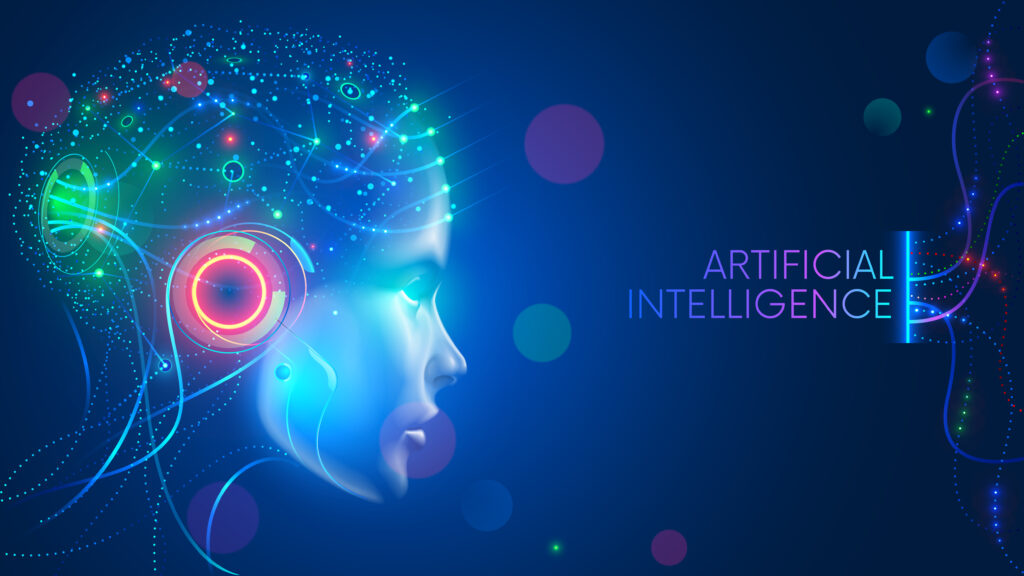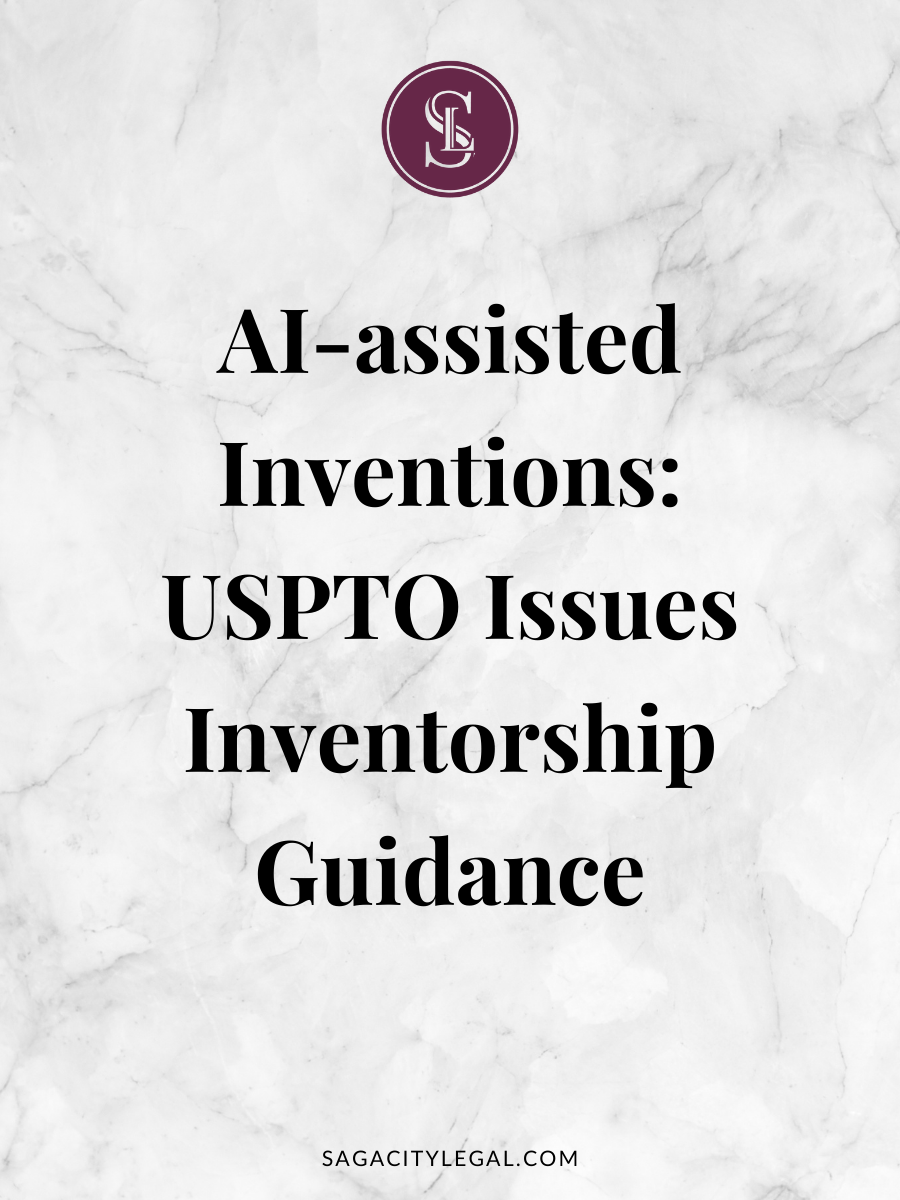
The United States Patent and Trademark Office (USPTO) last week issued inventorship guidance for artificial intelligence (AI)-assisted inventions.
This is a significant step forward in acknowledging the role of AI in innovation, and it’s great news for businesses that are pushing the boundaries of technology.
As an entrepreneur, you might be wondering what this means for your business.
How can AI assist with innovation, and how will this guidance help you secure your intellectual property?
Keep reading!
What does this guidance change?
Let’s start from the beginning….
ARTIFICIAL INTELLIGENCE IS HERE TO STAY
You may think of artificial intelligence as the stuff of science fiction movies. Do you remember the 1990s movie “The Matrix”? In that movie AI (an evil cyber-intelligence) took control of human existence. The humans, perfectly happy in their virtual reality; actually were being used as power supplies for the AI. This was not a pretty picture. The movie gave us both a strange sense of AI as an enemy and something to carefully control.
In actuality, AI is a part of our everyday lives. Spell checkers, spam filters, and anti-virus software on your computer all use artificial intelligence. Social media personalized feeds, friend suggestions, and news filtering also use artificial intelligence. Search engines are also powered by artificial intelligence. The list goes on and on. I predict that AI will be doing more of the basics as time goes on to allow humans to do more advanced stuff.
That’s right, unlike the evil AI of The Matrix movies, artificial intelligence continues to make our lives easier, each and every day.
ARTIFICIAL INTELLIGENCE INVENTORS
In the past few years, through many patent application filings, patent offices around the world have declined to extend patent inventorship to an Artificial Intelligence (“AI”) named DABUS, stating that the application did not name an “inventor.”
Who is DABUS? DABUS stands for “Device for the Autonomous Bootstrapping of Unified Sentience”.
DABUS’s creator, Dr. Thaler argued that DABUS is capable of creativity, individual emotions, and overall independent conception. As such only DABUS can be considered the inventor.
The various patent office decisions explained that under current patent laws, inventorship is limited to a natural person(s).
On appeal, the Federal Circuit affirmed “that only a natural person can be an inventor, so AI cannot be.”
According to the United States Federal Circuit:
“Conception is the touchstone of inventorship, the completion of the mental part of invention. It is the formation in the mind of the inventor, of a definite and permanent idea of the complete and operative invention…[conception] is a mental act…”
Based on patent law, if Dr. Thaler declared himself the inventor, the patent could be invalidated. Even more concerning, it is a criminal offense in the United States and other countries to declare yourself a patent inventor if you do not meet the conceptual requirements.
So what’s a patent applicant to do?
…and that’s the question that the USPTO guidance begins to answer.
Not completely.
Not exactly.
But it’s a start.
The bottom line
The USPTO concluded that AI-assisted inventions are not categorically unpatentable due to improper inventorship if one or more natural persons significantly contributed to the invention.
This guidance is essential because it provides clarity on how businesses can protect their intellectual property rights in the age of AI-assisted inventions.
In the context of AI-assisted inventions, natural person(s) who create an invention
using an AI system, or any other advanced system, must contribute significantly to the
invention.
In the event of a single person using an AI system to create an invention, that single
person must make a significant contribution to every claim in the patent or patent
application.
Inventorship is improper in any patent or patent application that includes a claim in which at least one natural person did not significantly contribute to the claimed invention, even if the application or patent includes other claims invented by at least one natural person.
What’s next?
Of course, there are still challenges to overcome.
For example, how can businesses prove that an AI system did not contribute to conception?
How can they ensure that the inventorship requirements are met when using AI?
These are complex issues that will require further clarification from the USPTO and other regulatory bodies.
However, the fact that guidance has been issued in this area is a positive step forward.
Moreover, the issuance of this guidance acknowledges the growing importance of AI in innovation.
It’s becoming increasingly clear that AI-assisted inventions have the potential to revolutionize entire industries.
Do you need help patenting your AI assisted or AI related invention? I can help. Contact me here or schedule time with me at meetwithRandi.com
#uspto #artificial intelligence #AI #inventorship #patents


leave a comment on this post.